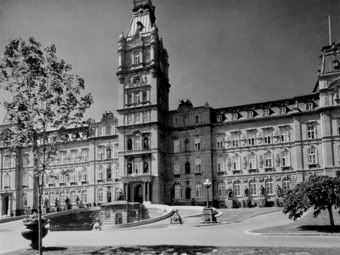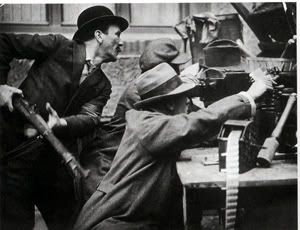London, England - December 1870


House of Commons member William M. Smith stared out of the fogged up window of his carriage. Using his glove, he wiped away the fog to gaze at the damp streets of London outside. Rain poured off of the painted-black wood that made up the roof of his favorite carriage. There was scarcely a soul on the streets. This was the fourth strait day of rain.
“Just a typical week in England.” He said to himself.
His driver had heard him. “Aye. Rain, rain and bloody more rain.” He said. Smith chuckled at this. Lord knows he needed a laugh. The past few weeks had been very tense in Parliament. France’s victory over Prussia had put everyone on edge. Everyone, William included, knew what the French were like after a victory; arrogant and aggressive. Many a military expansion proposal had been made. Some of them, he supposed, made a great deal of sense. The Fleet was getting rather obsolete; some of the ships needed replaced. But conscription? Out of the question. That bill had been sunk before it even got in the water. He supposed his arguments against that bill had been what had forced Gladstone to invite him to his house. Smith was a force, of sorts in the House of Commons. Most of the other members respect him.
“Here ye ar’, Mr. Smith.” The buggy driver said.
“Oh, thank you, Austin.” William said, flipping a ten pence piece to his driver.
“Thank ye, sir.” Austin said as he pulled away from the steps of Prime Minister Gladstone’s house. A servant stood waiting with an umbrella for William.
“Here you are sir, wouldn’t want you to catch a cold, now?” The servant said, holding the umbrella over William’s head.
“No, no, not at all…” William replied.
Gladstone owned a charming East London home that reflected his Liberal views. It was simple, yet sophisticated. It was made out of red brick, and couldn’t have been more than 5 years old. William wasn’t 5 steps within the house when the Prime Minister was shaking his hand eagerly.
“Hello William!” He said with a smile. “Care for a cup of tea?”
“Hello, Mr. Gladstone,” Smith replied. “That would be delightful.” Gladstone signaled his butler to fetch them some tea. He then proceeded to lead Smith into his massive library.
“Dear god, Mr. Gladstone!” Smith shouted, “There must be over a thousand books here!”
“I suppose,” Gladstone replied. “Ah, here’s our tea.”
As soon as the butler left, Gladstone hurriedly shut the large chamber doors of the Library.
“Privacy is very important in politics.” He said.
“Now Mr. Prime Minister,” William started, “What brought you to ask for my presence?”
“The French Empire.” The Prime Minister answered, with a serious expression across his face. William waited for an explanation. “Ever since they humiliated Iron Otto they’ve been strutting around like all of Europe is theirs. Expeditions are being sent to Africa and the Pacific. They’re feeling very Imperialistic, and I for one don’t like it.”
“How do I fit into all of this?” Smith asked.
“You are pretty much the leader of the Liberals in the House of Commons. If you go a certain way, the rest will follow.”
“Go on…”
“I will soon be pushing a bill through Parliament. I intend to expand the Royal Navy and increase the number of men in the Army. To get this past the conservatives, I will use to cover of ‘Colonial Protection’. In a sense, this is true. We are exploring and colonizing more of Southern Africa, and India is an explosion if the natives aren’t held down.
“And you want me to support your bill.”
“Precisely. The Empire’s security is at stake.”
“Mr. Gladstone, I do not believe that France is a threat to England.”
“Yet. My sources in Brest tell me that the government has undergone a naval expansion program. And over half the wartime French Army has yet to be demobilized. This is very serious.”
“I’ll see what I can do.”
January 1, 1871
Napoleon III, in his annual speech to the French government, announces that he plans to increase the Military’s budget by almost 25%. The government is skeptical at first, but eventually gives in to the budget proposal.
Napoleon III, after his almost perfect victory over, is enjoying his almost god-like treatment within his government and country. He has aspirations of turning his France into one that could rival Napoleon I’s France. His victory over Prussia could make this happen.
January 15, 1871
France begins work on a new Battleship. Colbert will be the first of the new Colbert-class of battleship. Construction begins in Brest. It is scheduled to be finished by late 1872 early 1873. Another of the Colbert-Class, Trident, is also planned.

The Colbert
Febuary 21, 1871
Minister William Smith begins pushing a bill for a considerably increased military budget. His arguments in the House of Commons carry much weight, and it is expected that the Prime Minister Gladstone-backed bill will get through both the House of Lords and Commons.
March 1, 1871
The Militarization Act of 1871, as the new Military Budget is called, is passed by a large margin. England moves towards modernizing her navy and increasing the number of bodies she has in the Army.
March 8, 1871
Riots break out in Hamburg, Berlin, Konigsberg, and Cologne, Prussia over food shortages. Most of the rioters are members of a Marxist Group intent on overthrowing the current government of Prussia. The military is called opon to break up the riots after the local police’s efforts prove futile.

Marxist Revolutionaries in the streets of Hamburg
March 11, 1871
After 3 days of rioting, the Prussian food riots finally end. The Marxists proved to be fanatical, opting to rather shoot it out with soldiers than to simply return to their homes. Over 250 Prussians, Marxist, Military and Civilian alike, are killed with hundreds more wounded and many buildings trashed.
In Berlin, a frantic Prussian monarchy tries to smoothe out a deal with another nation.
To Be Continued….
No comments:
Post a Comment